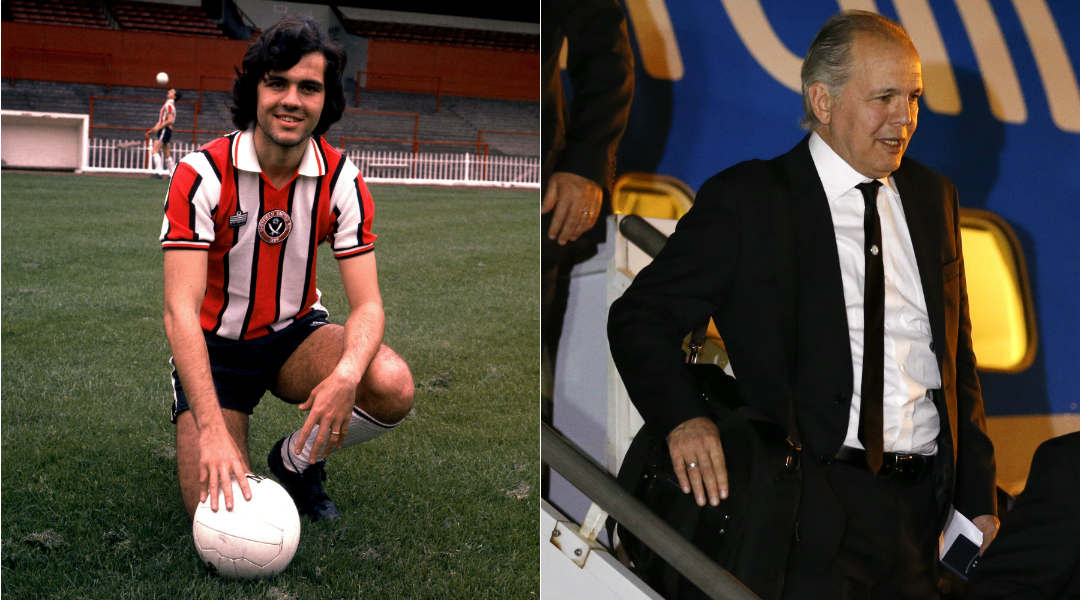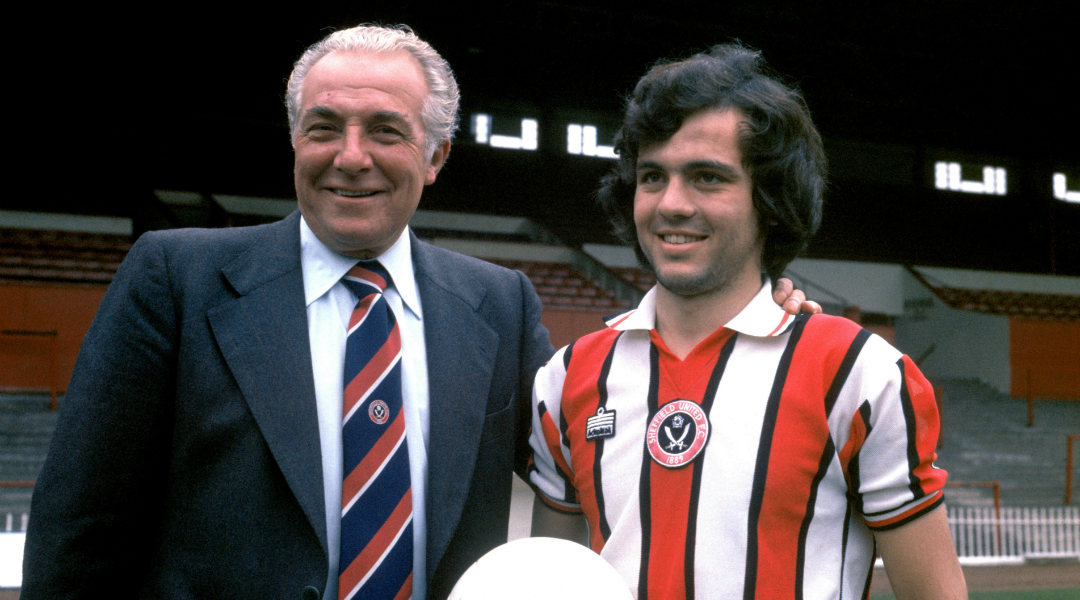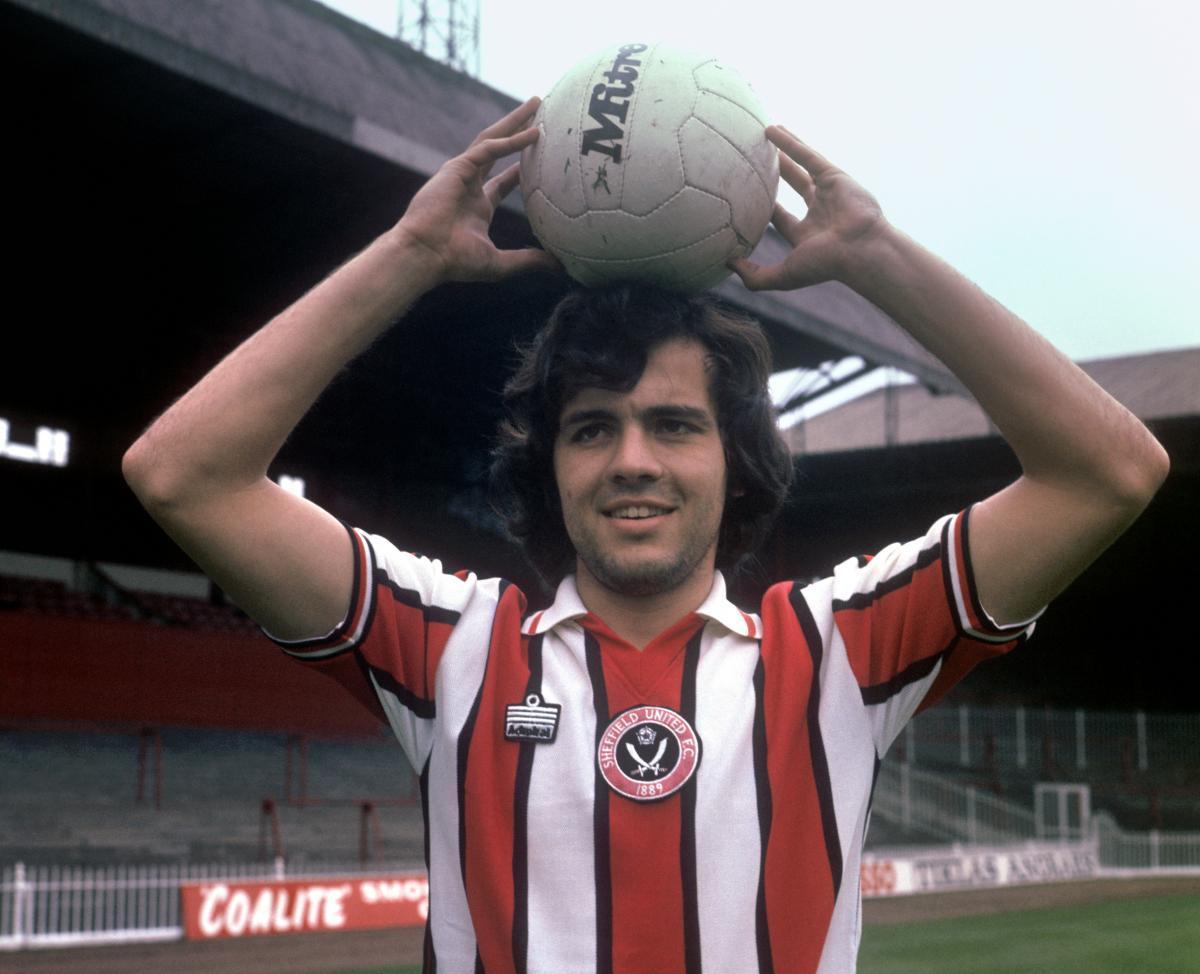Sabella in Yorkshire: How the Argentina boss came to Sheffield United (because they couldn't afford Maradona)
Blades team-mates tell Richard Edwards about Alex Sabella's Bramall odyssey...

“It was like an army following me about: 'are you signing this player, are you signing that player’... in fact according to one local paper I’d signed 22 players at one game.”
Those were the words of former Sheffield United boss Harry Haslam on his return from one of English football’s most notable scouting trips.
The larger-than-life Haslam had travelled to Argentina to attempt to capture the signature of a little-known 17-year-old called Diego Maradona. But after that deal feel through – due to the Sheffield United board's reluctance to part with £200,000 plus add-ons – Haslam returned to these shores with River Plate midfielder, Alejandro (or plain old Alex) Sabella.
Tonight that same man will be in the dugout as Argentina begin their attempt to win their first World Cup since 1986, and although the hair has thinned and the features have sharpened, his face will still be unmistakable to misty-eyed Blades’ fans of a certain vintage. “My dad reckons he could do things with a football he hasn't seen since,” says Danny Hall, a sports writer with the Sheffield Star and Telegraph.
Get FourFourTwo Newsletter
The best features, fun and footballing quizzes, straight to your inbox every week.
"The lads were open-mouthed"
If they don’t make ‘em like Sabella now, though, it must have seemed that Sabella had been transported from a different planet when he touched down in Yorkshire 36 years ago.
“We had never seen anything like it,” his former captain Mike Speight tells FFT. “The first day he turned up all the lads were looking at each other with open mouths.”
But while United were delighted to welcome their most exotic import since the banana, the Argentines weren’t so pleased with his defection.
“We get to the airport and the man who’s looking at the passports doesn’t want to let us out because we’ve got Sabella with us,” said Haslam, while urging caution as the press descended on Bramall Lane to meet a man who had unfathomably swapped life at a South American giant for a stint in the Second Division.
“You come seven and a half thousand miles, you don’t settle in a day,” said Haslam. “We usually give Scottish players a few months to settle in our football.”

The deal itself had been set up through Haslam’s incongruous link with Antonio Rattin, a player best remembered for his sending off in the World Cup quarter-final of 1966.
“Harry had his own way of doing things, he was a great chap,” says Speight. “He was ahead of his time, but who would have thought he would have the former Argentinian captain as a contact and used him to get the best young players in South America to come to Sheffield? We’ve got a lot to thank Harry for in this county.”
That may be so, but as late summer became autumn and the Yorkshire chill began to bite, Sabella’s Mosborough-dwelling wife wasn’t 100% appreciate of Haslam’s powers of persuasion.
“What I’ve found out so far is that it seems to be a very quiet life here,” she said, supressing the urge for an on-camera yawn. “Even in Sheffield there doesn’t appear to be a lot of nightlife.”
In the work-hard, play-hard days of English football, though, Sabella would hardly have been everyone’s ideal drinking companion. “The young man knew how to look after himself,” says Speight. “He would have the odd glass of red wine but generally he kept himself to himself.”
Brutality as sincere flattery
He was similarly elusive on the pitch – despite the best efforts of Second Division bruisers intent on making their mark.
“He was a very good player, it was an absolute pleasure to play with him, especially as a 19-year-old coming up through the ranks,” says former team-mate Steve Charles. “It must have been quite daunting come over here at that age but he was always willing to pass on information to the young lads so I can see why he has done well in the coaching world.
“If I’m truthful he was probably above our standard. He was a Premiership player in reality. I think he found the aggressiveness of English quite hard to adapt to. He was a bit of a target but he was one of those players who was very difficult to get the ball off, he was a bit of a George Best really.”
Speight agrees, but says the Argentinian saw his brutal treatment as a compliment.
“At that time in England you always had people in your own team who could look after you,” he says. “And Alex, in truth, didn’t mind being kicked he was saw that as a way of people showing him respect. That was the beauty of the boy, you could kick him, you could pull him, do anything with him, but his natural ability was enormous and his football intelligence for a young boy was incredible.”

The man himself appeared to admire the English style, despite it being the absolute antithesis of his own beliefs.
“Over here I think we play with more honesty and with fewer bad intentions,” said Sabella. “In Argentina the marking’s tighter and they’ll do anything to stop you.”
There was little doubt that he made a lasting impression at Bramall Lane – and also at Elland Road after he signed for Leeds in 1980 – but his on-pitch legacy is less impressive.
Haslam’s side were relegated to the Third Division in his first season at the club and despite beginning the following campaign with a bang, Sabella was unable to inspire the Blades to an immediate return.
“It wasn’t the best period for the club but it was a time that we needed to be lifted, and he did that, no doubt,” says Speight. “His charisma and his ball-play didn’t just lift us, he lifted the whole crowd. The crowd had lost their favourite in TC (Tony Currie) but he was a great, great replacement. Yes, we got relegated but the entertainment was incredible. Back then we were side who either win 6-5 or lost 8-6.”
If that part of Haslam’s philosophy rubbed off on Sabella, then Argentina could be about to take entertainment to a whole new level in Brazil.
Argentina: 60-second dossier • Bosnia Match Preview

